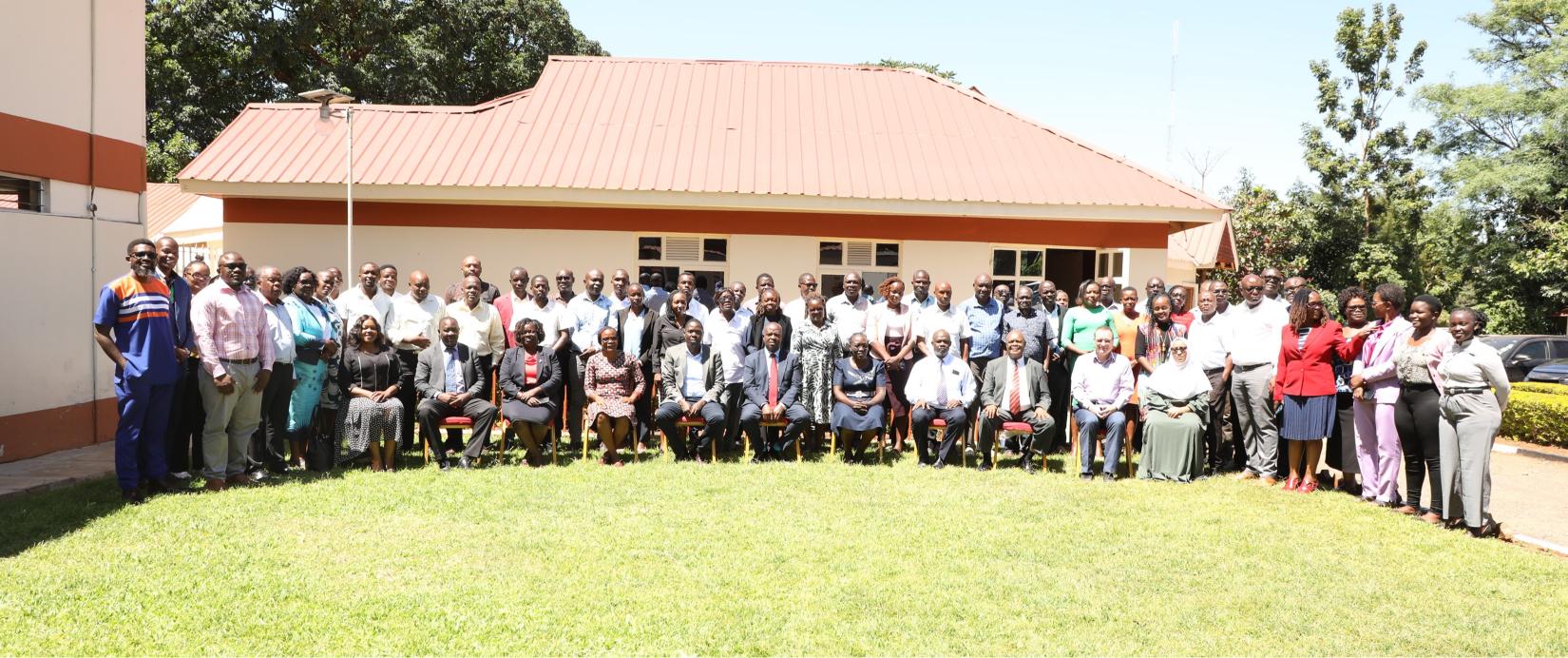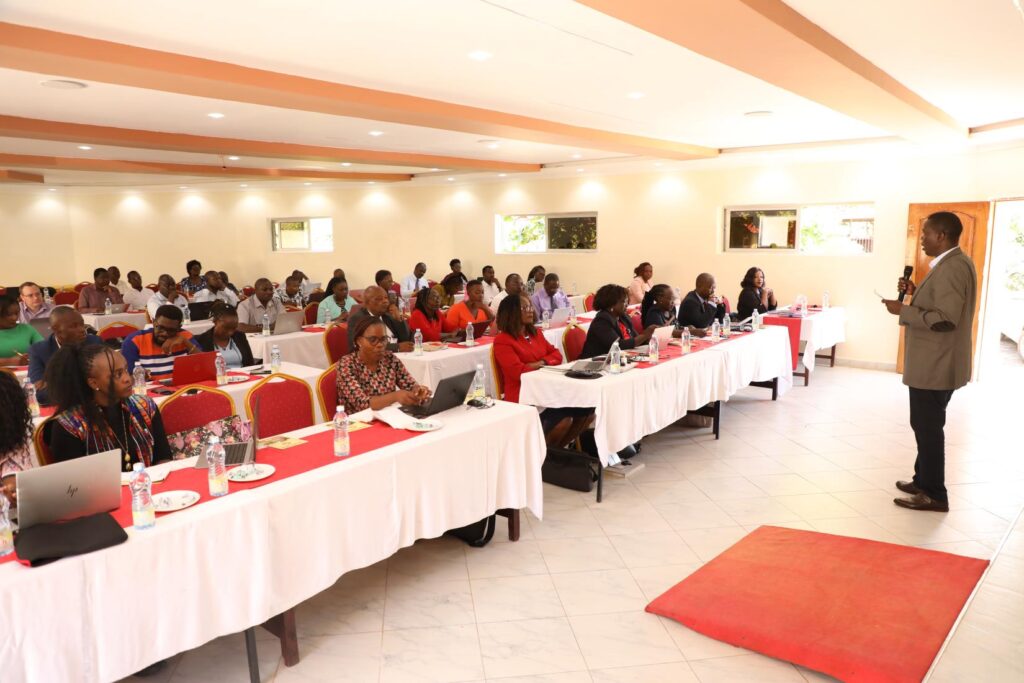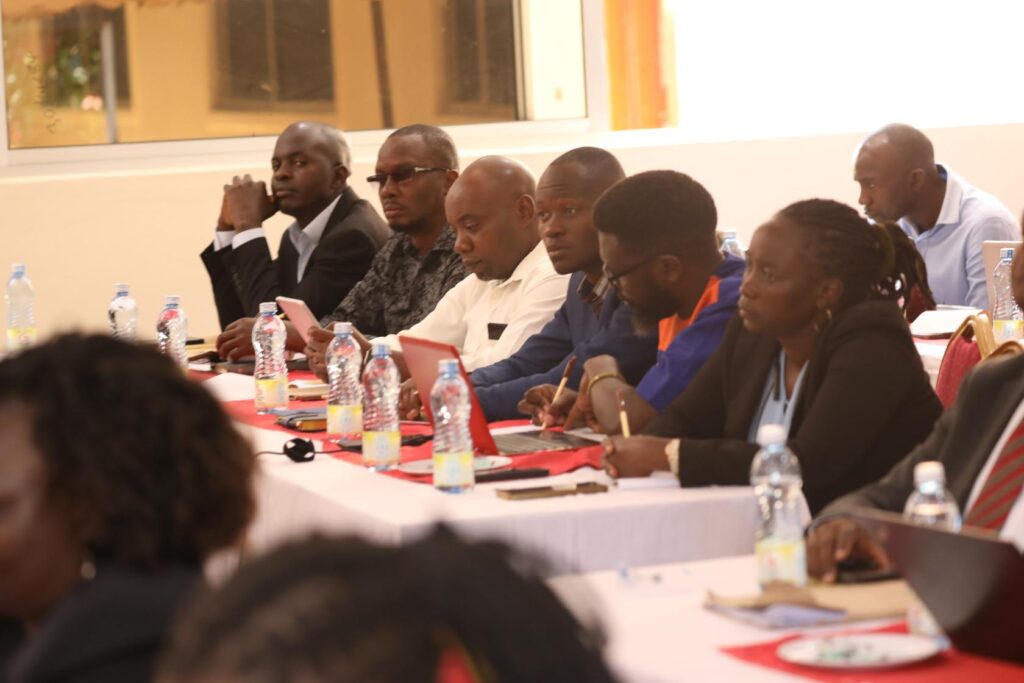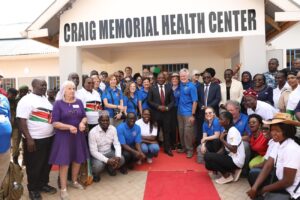
From Ideas to Action: MMUST Marks Historic Debut of Skills-Driven Short Courses During Ground-Breaking Curriculum Development Workshop
Masinde Muliro University of Science and Technology formally set the stage for the debut of short courses, launching the initiative with an inaugural multidisciplinary development workshop held on Thursday, 25th November 2025, at Golf Hotel Kakamega. The milestone follows a substantive period of meticulous groundwork by the Directorate of Short Courses and Webometrics Research, aimed at rolling out a new generation of short courses designed to deliver industry-ready skills, keep pace with emerging technologies, shifting trends, and evolving policy demands.
The workshop brought together national and international experts in STEM research and academia, including Prof. Mustafa Hilmi Çolakoğlu from the Cappadocia Innovation Institute in Turkey and Ms. Norah Adera, a Senior Researcher and Educator under the Teachers Service Commission (TSC). The event was officially opened by the Registrar Planning, Research and Innovation (PR&I), Dr. Collins Matemba, on behalf of the Acting Deputy Vice Chancellor PR&I, Prof. Peter Bukhala.
In his speech, Prof. Bukhala recognized that short courses are the bridges between knowledge and action, noting that the initiative offers the University a unique opportunity to extend its reach and enhance competitiveness.
“Implementation calls for vision and collaboration and must therefore be organized and transparent. To ensure continuous improvement, we need to align identified needs with the right learners,” read part of Prof. Bukhala’s speech. He urged the short course providers to acquaint themselves with the Short Courses Policy, which outlines key procedures for course development and delivery.
Speaking in his capacity as Registrar for Planning, Research, and Innovation, Dr. Matemba said that the decisive step towards the development of short courses is anchored in the Short Courses Policy, which reflects MMUST’s evolution, commitment to excellence, and adaptability to policy shifts. Dr. Matemba, who oversees policy implementation in MMUST, added that the Short Courses Policy is aligned to national and global development agendas and provides direction for the University and other stakeholders on short courses delivery.
“The University will continuously improve and innovate short course content and delivery, ensuring accessibility and inclusivity for diverse learners,’’ said Dr. Matemba.

The Registrar Planning, Research and Innovation (PR&I), Dr. Collins Matemba addressing the workshop participants
While giving his opening remarks, the Director, Short Courses and Webometrics Research, Dr. Dennis Ochieno, reiterated the directorate’s commitment to enhancing the University’s visibility and competitiveness in research and academia. He recounted the journey to this unprecedented milestone, encouraging all stakeholders to work together on the development of quality short course curricula for national and international audiences. Dr. Ochieno introduced members of the Short Courses Committees and recognized their dedication and hard work, especially in vetting the short courses presented at the workshop.
“The next step after this workshop is to refine our short courses content and gear up for the rollout of the first batches of short courses, following approval by the University Senate,” Dr. Ochieno affirmed.
The main facilitator, Ms. Norah Adera, guided attendees through practical steps in designing effective short courses. The participants examined emerging job skills in digital technologies, AI leveraging, and the need for adaptability and lifelong learning to remain competitive. Ms. Adera called on participants to create short courses with a focus on tackling local and regional challenges.
“There is need to establish the gaps between the current skills and requirements in the workplace, community, or policy environment,” said Ms. Adera.

The Director, Short Courses and Webometrics Research, Dr. Dennis Ochieno addressing workshop participants during the workshop
The Coordinator of Short Courses, Dr. Patricia Kariaga, thanked the workshop participants for their active participation in enhancing short courses at MMUST. She appreciated the University management’s efforts towards delivering quality short courses and encouraged all stakeholders to collaborate closely with the Directorate of Short Courses and Webometrics Research in refining respective course curricula.
The Deputy Principal of MMUST TVET Institute, Dr. Sabella Kiprono, explored the integration of short courses into Technical and Vocational Education and Training (TVET), emphasizing the Recognition of Prior Learning (RPL) and the development of curricula that help learners transition smoothly into TVET programmes under levels 5 and 6.
The workshop featured a series of engaging presentations from both internal and external experts. The Director of Career Services, Prof. Robert Egessa, highlighted strategies for marketing short courses, while Dr. Eric Wangila, an expert in Curriculum and Instruction at MMUST, introduced participants to the curriculum design principles, emphasizing the need to come up with outcome-focused, skill-based short courses that can be implemented. Drawing on his experiences in Turkey, Prof. Mustafa Hilmi shared insights on integrating technology into STEM education, citing a key challenge in technological integration and misaligned policies. Together, the sessions provided participants with practical guidance on developing high-quality, industry-relevant courses.

A section of workshop participants following presentations
The workshop attracted other notable attendees from Stellenbosch University (South Africa), Bungoma National Polytechnic, United Kenya Rising, St. John Ambulance Kenya, Deboar General Enterprises Limited, Swift Savannah Cyber Security, Mpesa Foundation and Kibabii University among others.
The successful debut of these short courses marks a new chapter for MMUST, demonstrating its competitive edge in embracing skills development, innovation, and academic excellence in response to national skill gaps in the dynamic workforce and rapidly evolving world. This is part of the transformative policies by the Directorate of Curriculum Review and Development under the leadership of Dr. Teresa Okoth.
Photos by Shiundu Masafu



